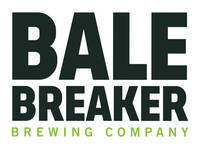
Yakima Town Hall - Town Hall Speaker Reveres Life of Dickens
YAKIMA HERALD-REPUBLIC
YAKIMA, Wash. -- When most people think of Charles Dickens, they remember his novels.
But what they don't know about him was the subject of Elliot Engel's talk during Wednesday's Yakima Town Hall Series at the Capitol Theatre.
"Charles Dickens' life is far more fascinating than any book he ever wrote," Engel said in front of a nearly full audience. "He earned $68 million as an author (in today's money). Nobody earns $68 million."
Engel, a noted writer and university professor from North Carolina, was the second speaker of the 2010-11 lecture series, which opened this fall with political commentator Cokie Roberts. The series will continue in the spring with journalist Kati Marton and motivational speaker Shawn Achor.
Since the series began nearly four decades ago, Engel has been featured five times. He's spoken on the likes of Winston Churchill, the Bronte sisters and Mark Twain.
But Dickens, he said, is his favorite author. Not only that, he was a phenomenal businessman.
"He grew up in abject poverty and vowed he would never be poor again," said Engel during a news conference Wednesday. "He knew how to sell himself."
Dickens' most notable works include "A Tale of Two Cities," "Great Expectations," "A Christmas Carol" and "Oliver Twist."
Born in 1812, Dickens' business savvy helped launch his career when a set of bizarre circumstances brought Robert Seymour to his door. Then deeply in debt due to being an alcoholic, drug user and compulsive gambler, Seymour was also a legendary illustrator looking to publish a joke book, Engel said. All he needed was someone to write the captions.
Dickens, who was in his early 20s at the time, was offered the job, but instead of accepting, he came up with his own proposal. He wouldn't write captions for Seymour's book. Seymour would draw illustrations for Dickens' novel.
The novel, called "The Pickwick Papers," would be published in three-chapter intervals. Cheap paper would be used, and each installment would end in a cliffhanger -- ensuring people will keep paying the one-shilling price to learn what happens next.
By the time the book was finished -- which Dickens said would be "so God-awful long, they'll buy it for two years," people will have paid $200.
These ideas came to Dickens while standing in a closet for five minutes, stalling while Seymour and the publisher waited in the living room for an answer, Engel said. And it was during these minutes that Dickens invented the paperback novel and the soap opera.
But that wasn't all. When the series ended in 1837, Dickens published a best-selling hardcover book with all the installments.
He also had a salesman go door-to-door to gather the original, paper copies people planned to toss. With these, he published the hardcover "Collector's Edition," which too sold for a hefty profit.
"Dickens is certainly the only author we'll ever have to sell the same book to the same people three times each," Engel said. "It was a money-making scheme like no other."
—Erin Snelgrove, Yakima Herald Republic
Posted November 03, 2010
Thanks to our generous sponsors!






"Thank you to your wonderful Town Hall. We felt like we were with our own family...warm, welcome, truly delightful. If anyone had told me when I was a little girl in Egypt that I would be speaking to an audience in Yakima, Washington about peace I would never have believed it. Yet I'm so glad to have had the opportunity." - Madame Jehan Sadat, Egypt's First Lady